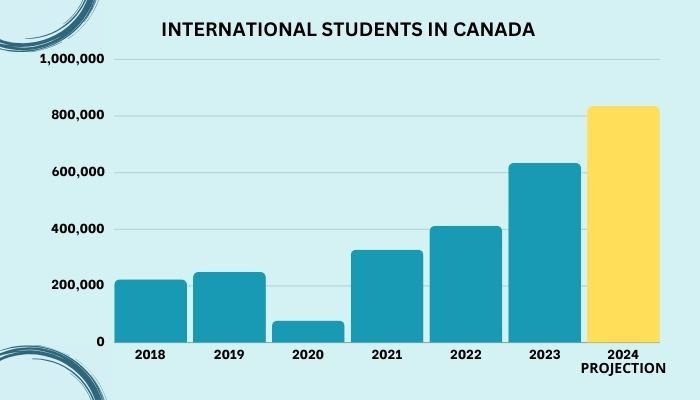As Canada continues to attract international students with its high-quality educational institutions and welcoming society, the government has announced several updates to better protect and support these students. The changes, which include extended work rights and revised financial requirements, aim to address the challenges global students face and ensure their success in Canada. In this article, we will explore the key updates and their implications for international students.
Financial Requirements for Study Permit Applicants
To ensure that international students are financially prepared for life in Canada, the cost-of-living financial requirement for study permit applicants will be raised starting from January 1, 2024. The previous requirement of $10,000 CAD, which has remained unchanged since the early 2000s, no longer reflects the rising cost of living. Going forward, applicants will need to demonstrate access to $20,635 CAD, representing 75% of the low-income cut-off (LICO), in addition to funds for travel expenses and the first year of tuition.

The adjustment of the financial requirement will be an annual process, aligning with Statistics Canada’s updates to the LICO. This revision aims to prevent situations where international students arrive in Canada with insufficient funds to meet their basic needs. By increasing the financial threshold, the government seeks to protect students from financial vulnerability and exploitation.
Extended Work Rights for International Students
In recognition of the importance of work experience and financial stability for international students, the Canadian government has extended the waiver on the 20-hour-per-week limit for off-campus work. Originally set to expire on December 31, the waiver will now be valid until April 30, 2024. This extension allows international students who are already in Canada or have submitted a study permit application by December 7, 2023, to work more than 20 hours per week during the winter semester.
If you’re in Canada or applied for a study permit by December 7, 2023, rejoice! The Canadian government extended the off-campus work limit waiver until April 30, 2024. Now, enjoy working more than 20 hours per week during the winter semester—explore increased opportunities!
The flexibility to work more hours off-campus provides numerous benefits for international students. They can earn additional income to support their studies, gain valuable work experience, and reduce financial burdens. While the extension is temporary, the government has expressed openness to exploring further policy changes, potentially increasing the off-campus work hours to 30 hours per week while classes are in session. This would provide even greater opportunities for international students to balance work and studies effectively.
Reference: Revised requirements to better protect international students/Canada.ca
Impact on International Students
These updates have significant implications for international students studying in Canada. By raising the financial requirement, the government aims to ensure that students have sufficient funds to cover their living expenses and reduce financial stress. This change will help international students plan their finances more accurately and alleviate concerns about inadequate funds.
The extension of the work hours waiver provides international students with increased flexibility and opportunities for employment. By working more hours off-campus, students can gain valuable work experience, enhance their resume, and contribute to their financial well-being. The extension of the waiver until April 2024 offers stability and allows students to continue building their careers while pursuing their studies.
Additional Measures and Future Plans
In addition to the updates on financial requirements and work rights, the Canadian government has announced other temporary measures relevant to students. One such measure is the extension of the policy that allows international students to count online study towards their Post-Graduation Work Permit (PGWP) eligibility. This extension applies to students who begin their study program before September 1, 2024, with online study constituting less than 50% of the program.
Furthermore, the government has implemented a temporary policy to extend the work permits of PGWP holders whose permits are expiring on or before December 31, 2023. This measure provides these individuals with an additional 18 months to gain work experience in Canada. However, it is important to note that this policy will not be extended beyond its current expiration date.
Looking ahead, the government remains committed to supporting international students and addressing the challenges they face. Ongoing evaluations of policies and potential expansions of off-campus work hours demonstrate their dedication to providing the best opportunities for students. Collaborations with partners and targeted pilots will be implemented to ensure that underrepresented cohorts of international students receive the support they need to pursue their studies in Canada.
Conclusion
Canada’s updates to the work rights and financial requirements for international students reflect the government’s commitment to their well-being and success. By raising the financial requirement and extending work rights, the government aims to protect students from financial vulnerability, provide them with valuable work experience, and foster their academic and professional growth. These changes will help international students better plan their finances, gain work experience, and contribute to the Canadian economy. As Canada continues to attract students from around the world, its commitment to supporting and empowering international students remains strong.

